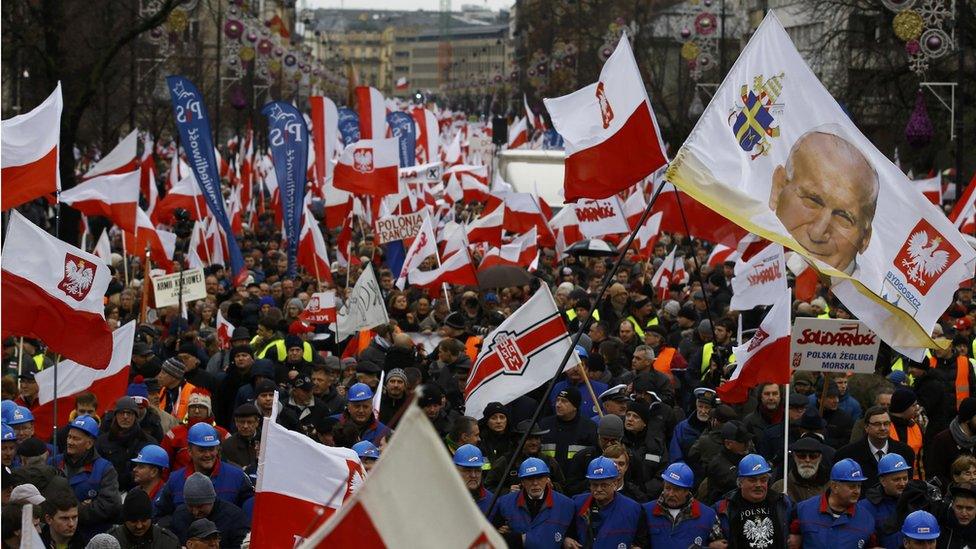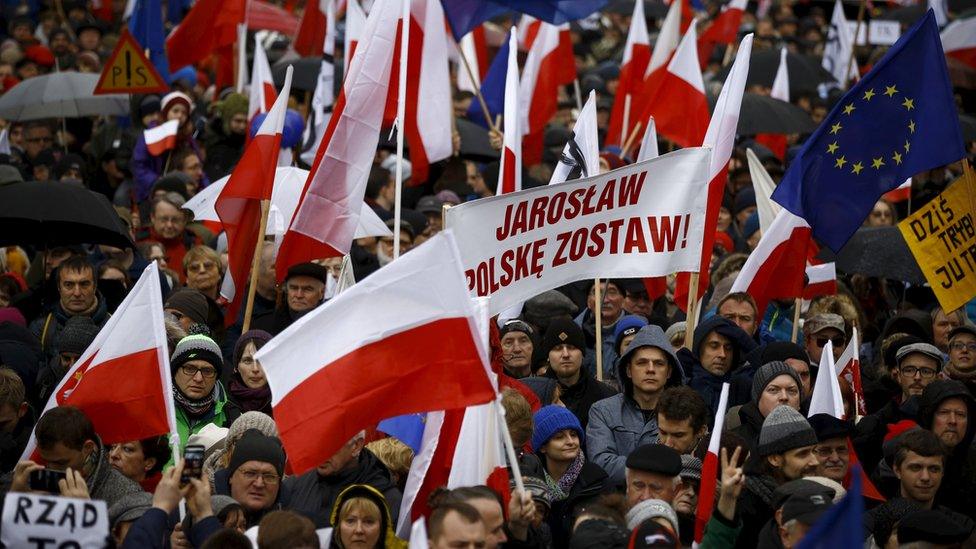Poland court reforms signed into law despite protests
- Published

People across Poland have protested against the changes to the working of the constitutional court
The president of Poland has signed a controversial reform of the constitutional court into law despite mass protests against the measure.
The changes require the 15-strong court to reach a two-thirds majority with at least 13 members present, in order to pass most of its rulings.
Activists say the amendment undermines democratic checks and balances.
The European Union executive expressed concern over the changes and asked for their introduction to be postponed.
The amendment was drafted and passed by the conservative nationalist Law and Justice (PiS) party, which has accused the court of blocking its policies.
"We won the election, but we have no right to set laws and remodel Poland," the party's leader, Jaroslaw Kaczynski told a crowd, earlier in December.
The PiS argue they are defending the court's role in upholding the constitutionality of the country's new laws.
"It's hard for me to understand the situation we've had until now, in which, de facto (just) three judges could rule on the legal fate of legislation passed by the parliament elected by the people," said President Andrzej Duda - a close ally of the party - who signed the amendment into law.
Since winning October's parliamentary election, PiS also named five new judges to the same court.
As a result, tens of thousands of people protested in cities across Poland and 15 officials issued an open letter voicing "anxiety and opposition" to the changes. These include former Prime Minister Ewa Kopacz, from Civic Platform (PO), as well as former Presidents Bronislaw Komorowski and Aleksander Kwasniewski.
On the government side, others marched in solidarity.
- Published19 December 2015

- Published13 December 2015

- Published12 December 2015

- Published26 October 2015

- Published27 October 2015
